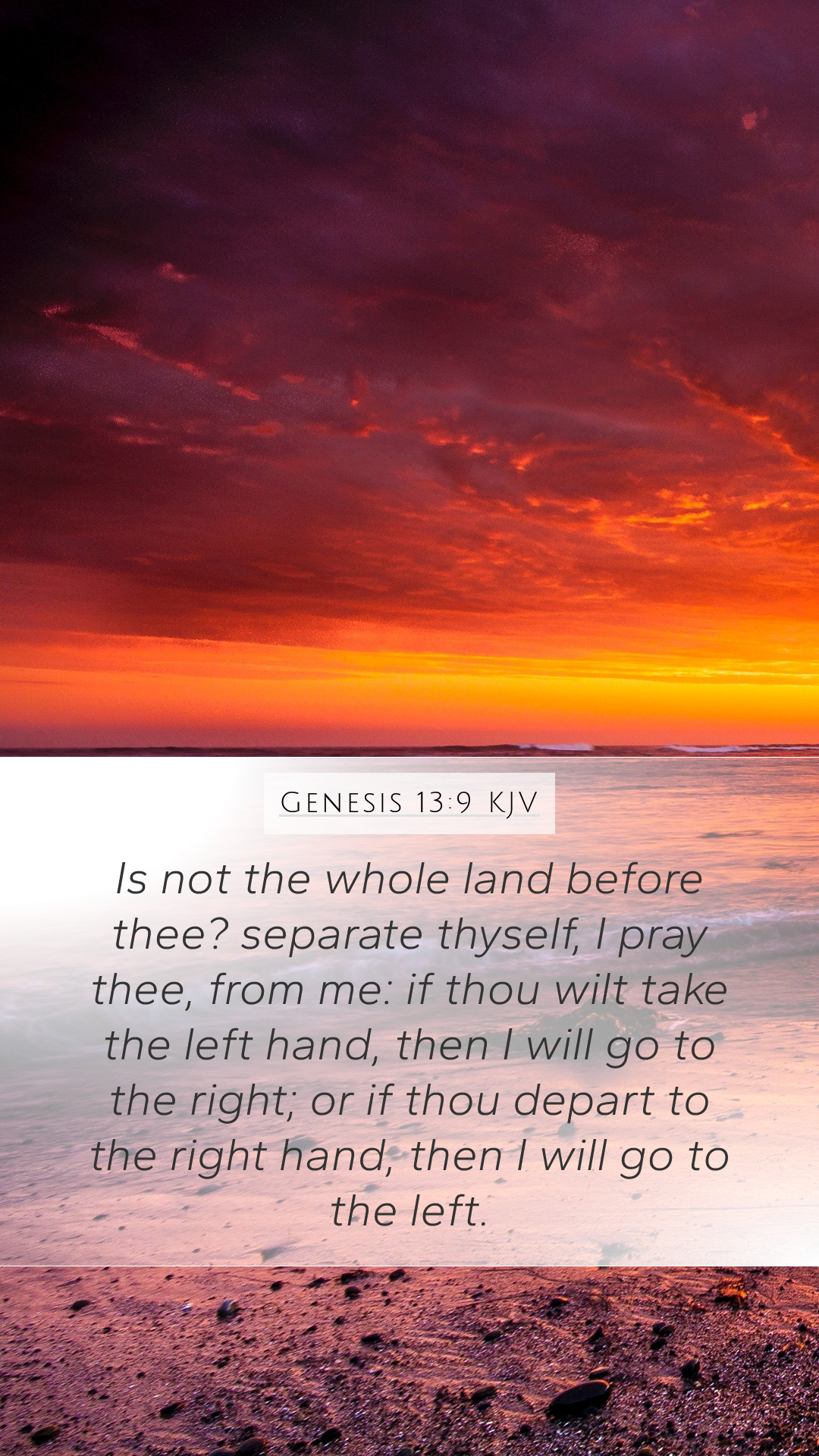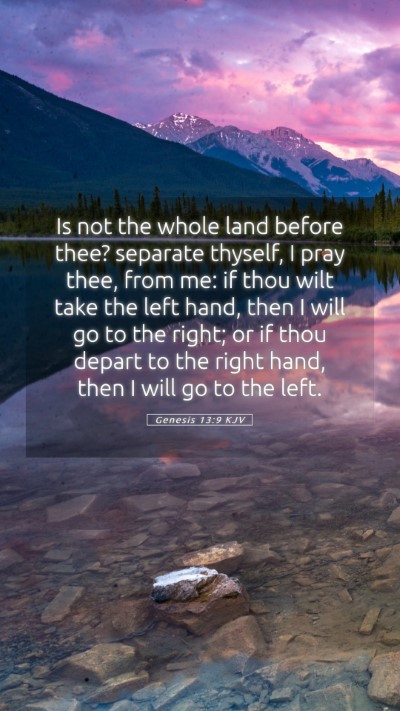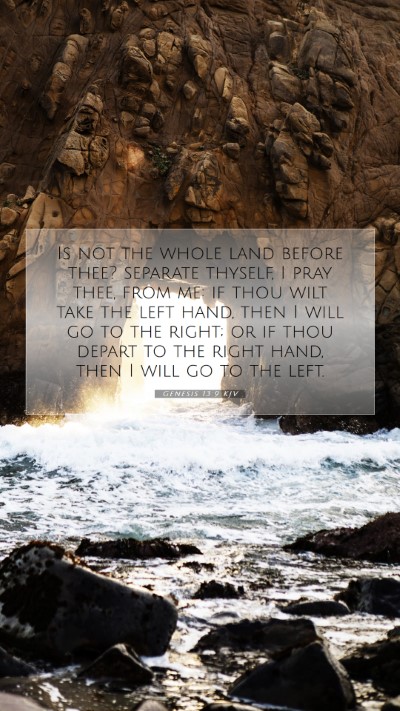Understanding Genesis 13:9 - A Comprehensive Bible Verse Commentary
Genesis 13:9 reads: "Is not the whole land before you? Separate yourself, I pray you, from me: if you will take the left hand, then I will go to the right; or if you depart to the right hand, then I will go to the left." This verse marks a significant moment in the relationship between Abram and Lot, reflecting themes of choice, separation, and divine providence.
General Overview
This verse is part of the narrative where Abram and Lot's livestock had grown too large for the land they occupied, leading to strife between their herdsmen. The proposed separation is a pivotal act, showcasing Abram's wisdom and faith in God's promise to provide.
Bible Verse Meanings
-
Choice and Freedom:
Abram offers Lot the choice of land, representing not only a physical separation but also a metaphorical freedom that God grants His people. This displays trust, as Abram relinquishes control, believing in God's provision.
-
Divine Guidance:
By giving Lot the choice, Abram exemplifies humility and faith in God's ability to bless him irrespective of the land chosen. This humility is rewarded later in God's covenant with Abram.
Bible Verse Interpretations
-
Matthew Henry's Commentary:
Henry emphasizes Abram's selflessness, suggesting that true faith often involves making sacrifices. Abram's willingness to let Lot choose represents a significant spiritual principle; when we allow others to thrive, God often blesses us more abundantly.
-
Albert Barnes' Notes:
Barnes points to the importance of the land's fertility in Lot's choice, noting that human judgments can sometimes overshadow divine appointments. The land's beauty might have deceived Lot into thinking he was acting wisely.
-
Adam Clarke's Commentary:
Clarke highlights relationships and the implications of choices made. Lot's choice leads to eventual conflict and ruin, while Abram's choice to respond with grace foreshadows the blessings to follow in his lineage.
Scripture Analysis
This verse encourages deeper reflection on our choices and their wider implications in life. In analyzing Abram’s conduct, we see a concrete example of a leader who prioritizes peace and goodwill over personal gain.
Spiritual Lessons
-
Trusting God:
Abram models for believers the act of trusting God for the future, leading us to question how we make choices in our lives, especially when they involve potentially significant consequences.
-
Conflict Resolution:
Resolving interpersonal conflicts gracefully—as Abram does—can serve as a guide for those participating in bible study groups. This verse resonates with how we navigate our relationships.
Application of Genesis 13:9
In applying this verse to daily life, consider how personal decisions can reflect a trust in God's plan. Whether in moments of conflict or decision-making, this scripture encourages believers to seek peace and act with wisdom.
Cross References
- Philippians 2:3 - Emphasizing humility in relationships.
- Hebrews 11:8 - Highlighting Abram's faith and obedience.
- Matthew 5:9 - Blessed are the peacemakers, for they will be called children of God.
Conclusion
Genesis 13:9 provides rich insights for anyone seeking Bible verse explanations and understanding Scripture. By examining this verse through various commentaries, readers can appreciate the depth of Abram’s faith and the implications of our choices, paving the way for fruitful bible study lessons.


